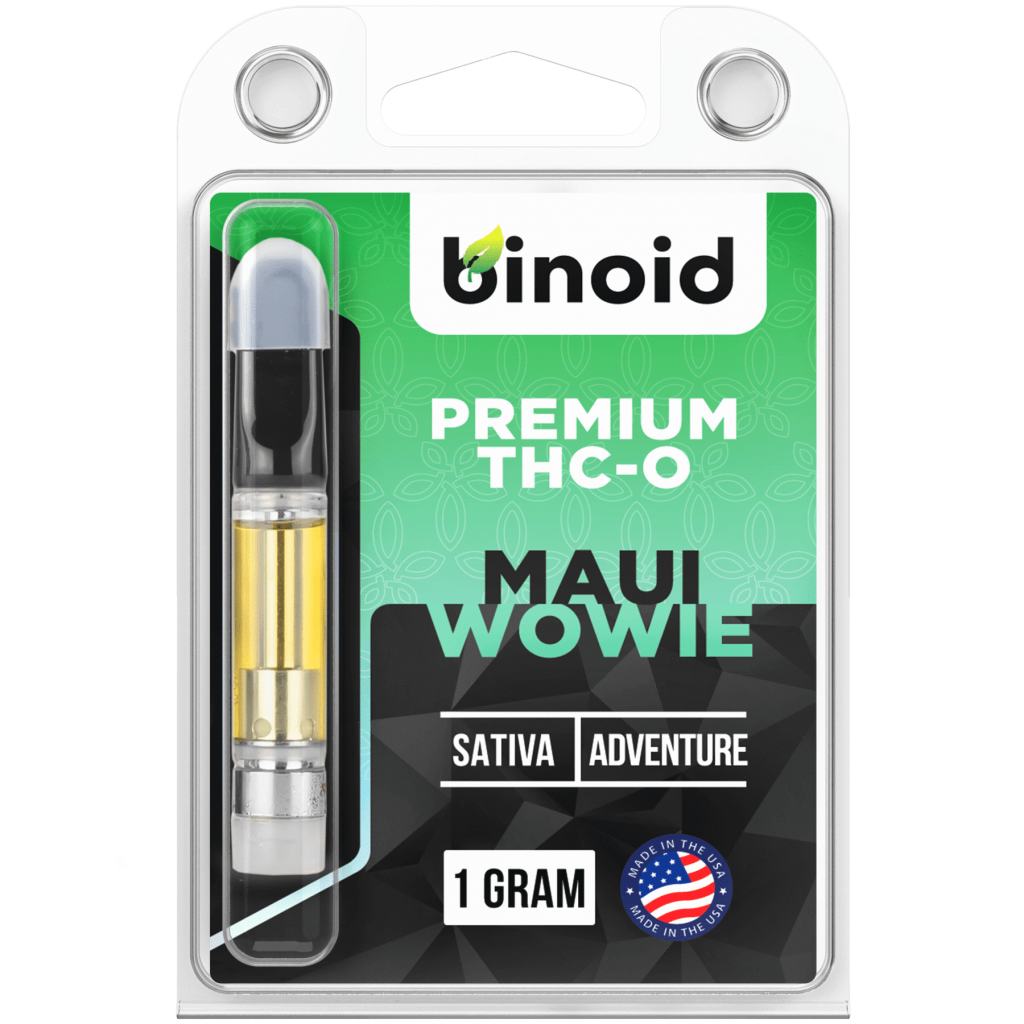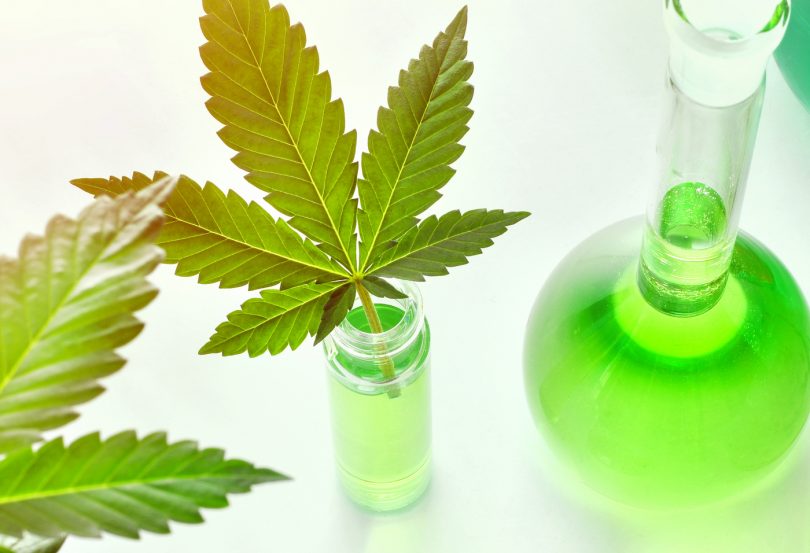The question of how a cannabinoid is “made” does not come up very often. That’s because it’s usually pretty simple, they are “made” by the cannabis plant. However, there are a few compounds that are byproducts of phytocannabinoids and some other type of chemical catalyst… meaning they aren’t 100% naturally derived. THC-O Acetate falls under this category. So, how exactly is this exciting and very potent cannabinoid created?
The psychedelic THC-O Acetate sure sounds interesting, and goes to show just how many different products can be made from cannabis. Compounds like that one, THCV, Delta-8 THC and Delta 10 are the newer face of the cannabis industry. We support the expansion of cannabis use, and have some really great deals for delta-8 THC and many other compounds. Take a look at our selection, and join the cutting edge of marijuana use.
To get our latest deals on THC-O vape carts, and to learn more about THC-O potency subscribe to the Delta 8 Weekly newsletter, below:
What is THC-O?
In short, THC-O is an analog of THC, meaning is has a similar chemical structure but, as is the case in chemistry, minor differences often lead to substantial changes. THC-O is short for THC-O-Acetate, or THC Acetate/ATHC. Most of the time you’ll see it written and referred to as THC-O. It’s important not to confuse ATHC with THCA, the parent molecule of THC which found in raw plants that have not yet been decarboxylated.
In tetrahyrdocannabinolic acid (THCA) the A stands for acid, NOT acetate like with ATHC. THCA can be converted to THC-O, but THCA is a natural phytocannabinoid and THC-O is not. THC-O is a synthetic cannabinoid that can only be produced in a laboratory setting, preferably by an experienced chemist. With the rise of DIY technologies, it can be tempting to try and make THC-O yourself, but the process can be difficult and quite dangerous, so it’s best left to the professionals.
Because it is an artificially produced cannabinoid, what you see is what you get – meaning all you get is THC-O and none of the beneficial terpenes and flavonoids that are found in natural oils. This is an obvious issue for whole-plant advocates and proponents of the entourage effects, but when it comes to pharmaceutical formulations, isolated cannabinoids are always preferred.
The purity of these compounds means that 1 milligram of isolate equals measures out to exactly 1 milligram of cannabinoid, whereas 1 milligram of full-spectrum plant extract might have 0.5 milligrams of THC, 0.3 milligrams of CBD, and 0.2 combination of other terpenes and compounds. This makes isolate very easy to use for specific dosing and product production.
According to Serge Chistov, the inventor of Nanobidiol Technology, says his team has found a safe and efficient method to acetylate THC using only approved solvents. Chistov says his team “developed the analytical standard for testing for THC-O, as well as being in the final stages of introducing products to retail outlets.” So, if everything stays on track, we can expect to see THC-O therapeutics relatively soon.
THC-O Acetate: More Potent, Psychedelic and Spiritual Than Delta 9 THC
THC-O potency: Delta-9 THC vs THC-O
We already know that THC and THC-O are chemically similar, but that small variation in molecular structure translates to a huge difference in potency. While it may seem like a stretch, this is very common in chemistry – think CO vs CO2, the former being a manmade potentially dangerous substance, and the latter a natural gas required for plant and human life. Another well-known example is H2O vs H2O2, water vs hydrogen peroxide. Small molecular changes can make a world of difference.
To be specific, THC-O potency is so high, that THC-O is considered to be three to four times stronger than Delta 9 THC. There are times when THC, despite how amazing it is, doesn’t seem powerful enough to accomplish the task at hand, especially when used for pain, digestive disorders, and other chronic health conditions. THC-O is not only much more potent, but our bodies recognize it as a completely different compound. This means THC-O can be used in place of Delta 9 THC if you have built up a tolerance.
Best THC-O Carts: Top THC-O Vape Cartridges of 2021:

“The prodrug [THC-O] enters the system as a Trojan horse. The body sees the horse, the body tries to destroy the horse, keeping the insides of the horse available for the body to process. This means the THC inside of the prodrug preparation will not be metabolized into 11-hydroxy-THC at the same rate and speed as the native THC molecule. That change in the metabolic perception of the body is what is partially responsible for the effect that most people describe as different,” Chistov explains.
Even recreationally, it has its place in the industry, and honestly, it sounds like a lot of fun. There is a huge market of people searching for cannabis products with more of a kick, which is exactly how concentrates came to be. It’s certainly not for everyone, but for people who like to experiment with pot products and psychedelics (myself included), it sounds like something worth trying at least once.
Those who have had the opportunity to try it claim that THC-O produces a much more spiritual, psychedelic, and introspective high than what they are used to from Delta 8, 9, or 10. Even habitual cannabis users noticed a difference. As a daily user, this alone has me sold, and I know many other people who feel the exact same way (hey subscribers, products will be available in our newsletter very soon!)
How THC-O is Made
Circling back, let’s talk a bit more about the THCA and THC-O connection. I have already covered the difference between the two (acid vs acetate), now it’s time to discuss how THCA can be converted to THC-O. Again, it’s a complex chemical process that should only be attempted by experienced chemists, this is NOT something that can be done safely at home.
In raw cannabis plants, cannabinoids are found in carboxylic acid from. Carboxylic acids are any of class of organic compounds in which a carbon atom is bonded to a hydroxyl group via a single bond, and to an oxygen atom by a double bond. When exposed to heat, the compounds lose their carboxylic acid groups and become the cannabinoids most consumers are familiar with.
Best THC-O Products
(Summer 2021 Edition)

Carboxylic acid and hydroxyl groups are both polar and hydrophilic, meaning small amounts of THCA (or any other cannabinoid acid) are water soluble. Using two chemicals – sulfuric acid and acetic anhydride – the conversion can begin. Summarized, the process goes like this: THCA + heat > D9 + sulfuric acid + acetic anhydride = THC-O Acetate. When THCA is converted to THC-O, the polar C-OH becomes C-O-CH2C=O-CH3. The carboxylic acid group is hydrolyzed by the heating with the sulfuric acid, which then reacts with excess anhydride to produce acetic acid. This acid reacts with regular THC at the hydroxyl group and becomes the potent THC-O-Acetate.
To reiterate, sulfuric acid and acetic anhydride are both very corrosive and hazardous chemicals that should not be in the hands of amateurs and everyday consumers. Attempting this process at home is incredibly risky.
THC-O Acetate Production – Final Thoughts
THC-O is such an interesting compound. Not only is it four times stronger than Delta 9, which as far as we know, is the most potent of THC’s, but it is so pure and had limitless therapeutic potential. You might be eager to try it, but since it’s too risky to make at home, your best bet is to check out some of the existing products the are just hitting the store shelves. For more articles like this one, and for access to exclusive deals on all the newest, rare cannabinoid products, make sure to subscribe to The Delta 8 Weekly Newsletter.
Want hemp flowers? Look at the best smokable hemp flowers









